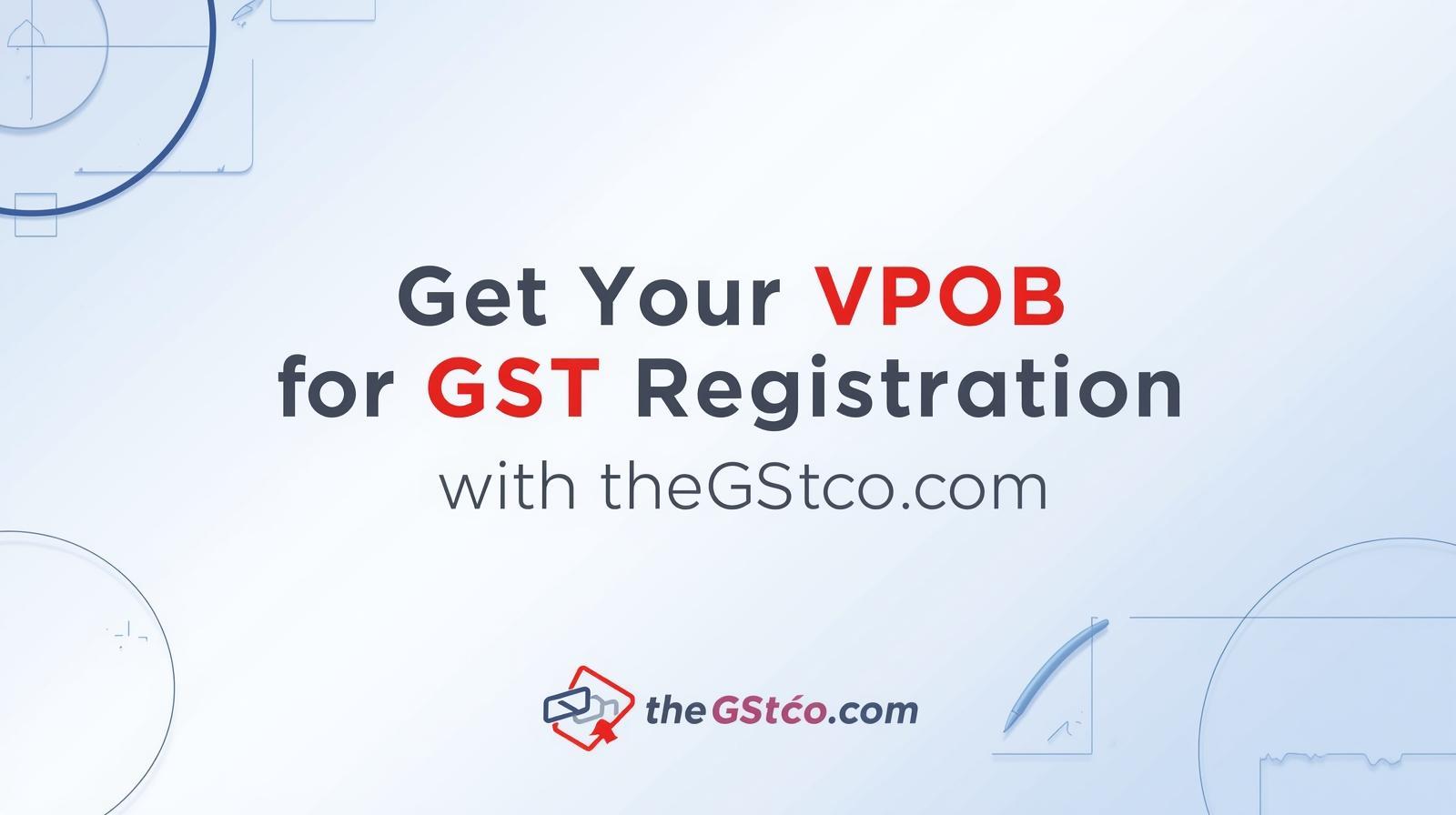Registering your business under the Goods and Services Tax (GST) is one of the first and most important steps toward building a credible and legally compliant enterprise. However, many new business owners unknowingly make mistakes during the application process, which can delay approval or even lead to rejection. With the increasing use of VPOB for GST Registration (Virtual Place of Business), understanding how to apply properly has become even more important.
A VPOB allows businesses to register for GST using a virtual office address instead of a physical one. It’s a convenient and affordable option for startups, freelancers, and online sellers who operate remotely. Yet, despite its benefits, many people face problems because of small but critical errors in documents or details. Here’s a detailed look at the common mistakes you should avoid when registering for GST through a VPOB.
Inaccurate or Incomplete Information
The most frequent reason for GST registration rejection is incorrect or incomplete information. Even a small mistake—like a spelling error in your business name, a wrong PAN number, or mismatched details between your PAN and Aadhaar—can delay verification.
When using a VPOB for GST Registration, check that all documents such as the rent agreement, NOC, and utility bill exactly match the details in your application. Go through every piece of information carefully before submitting your application to avoid unnecessary queries or delays.
Submitting a Non-Verified Address
The GST department requires valid proof of your business address. Submitting an unverified or reused address can easily cause rejection. If you are using a VPOB, make sure your provider issues proper documents, including a registered rent agreement, the property owner’s NOC, and a recent electricity bill.
Avoid opting for extremely low-cost or unverified virtual office providers. Many of these use the same address for multiple registrations, which can raise red flags during verification. Always choose a trusted provider with officially recognized business addresses across states.
Blurred or Poor-Quality Document Uploads
Many GST applications are held up simply because of unclear document uploads. If your rent agreement or proof of address is blurry, cropped, or hard to read, the verification officer may not be able to process your application smoothly.
Always use clear, full-page scans when uploading documents. A professional VPOB for GST Registration provider typically gives you well-prepared, digital copies that meet GST portal standards and are ready to upload directly.
Selecting the Wrong Business Category
Another frequent issue arises when applicants select the wrong type of business during registration. For example, a freelancer might mistakenly choose “Private Limited Company,” or an e-commerce seller might forget to mention their online platform.
Take a moment to understand your correct business structure before applying. If you are unsure, ask your VPOB provider or a GST expert for guidance. A wrong selection can lead to complications later when you file returns or update your profile.
Forgetting to Add Additional Business Places
Many businesses fail to list all their operational places, such as warehouses or distribution centers. If your business functions in multiple states or uses multiple storage facilities, you must mention them during registration.
Each state where you operate requires a separate GST registration. Having a VPOB for GST Registration in each of these states allows you to meet legal requirements without renting expensive physical offices.
Missing or Improper Authorization Letter
A missing or improperly formatted authorization letter can halt your GST registration. Every application requires authorization from the business owner or an authorized signatory.
Reliable VPOB providers usually include a standard authorization letter template as part of their service package. Ensure it contains the correct name, designation, and signature before uploading it to the GST portal.
Ignoring Queries from GST Officers
After submission, you might receive queries or document requests from a GST officer. Many applicants either overlook these or respond too late, leading to rejection.
Make it a habit to check your registered email and the GST portal regularly. A good VPOB provider will help you respond to officer queries quickly and correctly, preventing unnecessary delays in approval.
Choosing the Wrong VPOB Provider
One of the biggest reasons for registration problems is selecting an unverified or unreliable VPOB provider. Some providers offer incomplete documents, while others use the same address repeatedly for different businesses, risking cancellation of GST registrations.
Always verify that your VPOB for GST Registration provider offers government-approved addresses with proper paperwork—rent agreement, NOC, and recent utility bill. A trusted provider will ensure your documents are compliant and ready for verification.
Overlooking Post-Registration Compliance
Many business owners think the process ends once the GST number is issued, but maintaining compliance is equally important. You must keep all your VPOB and GST-related documents safely stored for future reference, as they may be required during audits or inspections.
Good record-keeping reflects professionalism and ensures smooth functioning if authorities ever review your registration.
Final Thoughts
Registering for GST becomes simple when you pay close attention to detail. Most delays or rejections happen because of easily avoidable mistakes like wrong information, unclear documents, or unreliable address proofs.
Using a VPOB for GST Registration is an efficient and cost-effective choice for modern businesses. It provides a verified address and all required documentation to help you register without renting a physical office.
By double-checking every detail, choosing a reliable provider, and keeping your paperwork in order, you can complete your GST registration quickly and confidently—ensuring your business stays fully compliant from the very beginning.



